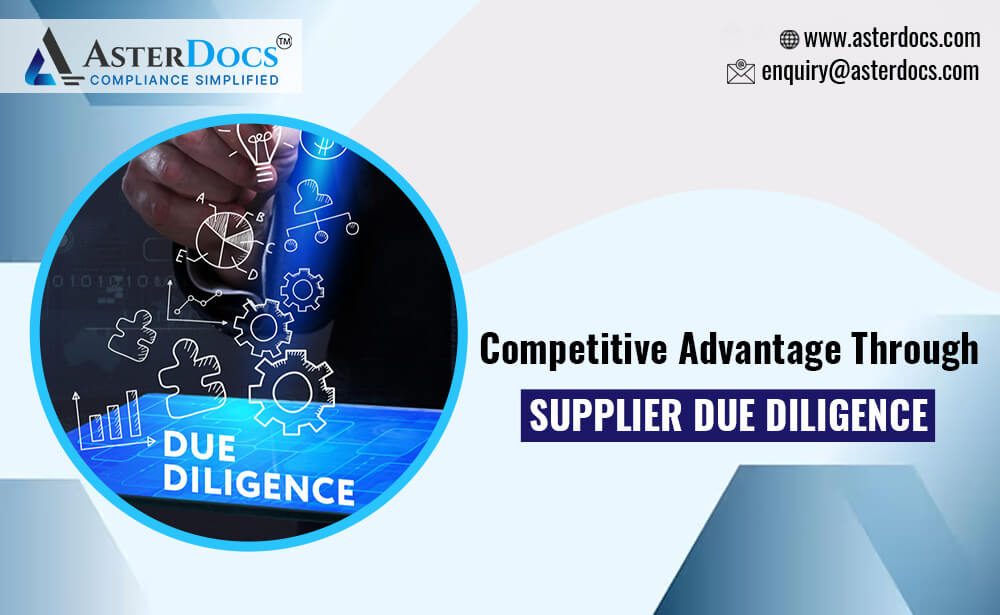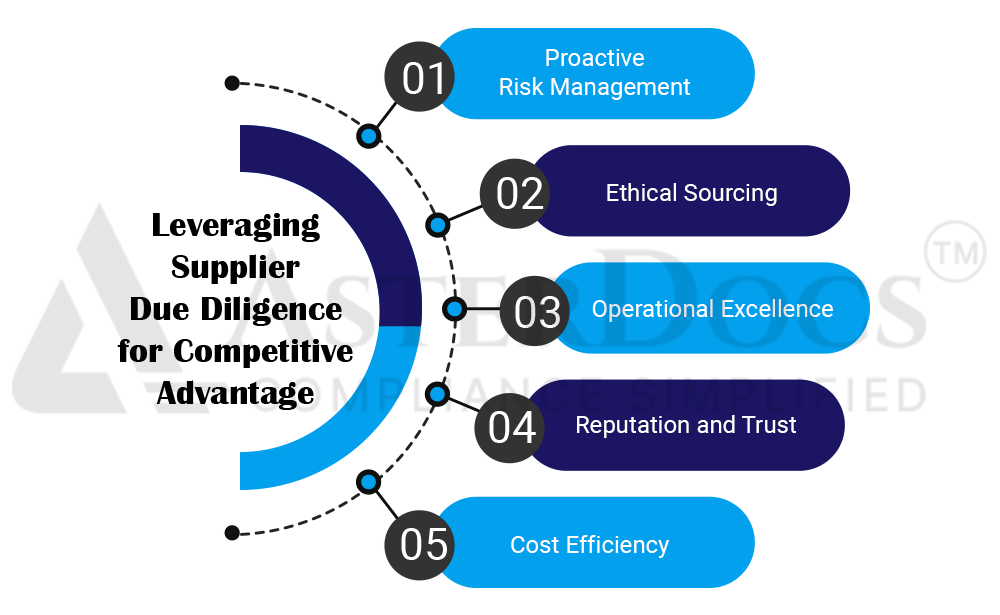In today’s business landscape, where companies operate in a complex global web of suppliers and partners, ensuring that your supply chain is not only efficient but also resilient is critical. Due diligence is a crucial component in achieving this goal.
What Is Supplier Due Diligence?
Supplier due diligence is the process of systematically evaluating potential and existing suppliers to ensure they meet your business’s needs, comply with regulations, and pose minimal risk. It’s about collecting and analyzing information to make informed decisions about your suppliers.
Here are some reasons why due diligence of suppliers is indispensable in today’s business environment:
- Risk Mitigation: The due diligence process of suppliers helps identify potential risks within your supply chain. It lets you spot issues like financial instability, regulatory violations, or unethical practices early, reducing the risk of disruptions.
- Regulatory Compliance: Many industries are heavily regulated, and non-compliance can lead to severe consequences. The due diligence process of suppliers ensures that the vendors adhere to necessary regulations, protecting your business.
- Cost Savings: By evaluating supplier financial stability and ethical practices, you can avoid costly disruptions and legal liabilities. This contributes to overall cost savings.
- Reputation Management: Ensuring your suppliers share your ethical values can protect your brand’s reputation. Ethical breaches by suppliers can harm your public image.
- Performance Enhancement: Due diligence can help you identify areas of improvement in your supply chain. By working with reliable suppliers, you can enhance performance and efficiency.
The Supplier Due Diligence Process
The process of supplier due diligence can vary depending on your industry, the size of your suppliers, and the nature of your business relationship. However, a typical process includes the following steps:
- Identify Key Risks: The first step is to identify the specific risks your business is exposed to. These risks have financial instability, compliance issues, or ethical concerns.
- Collect & Evaluate Information: Gather & analyze data about your suppliers, including financial statements, compliance records, and information about their operations.
- Make Informed Decisions: Use the insights from the evaluation to make informed decisions. This can include deciding whether to engage a supplier, renegotiating terms, or developing alternative sourcing strategies.
- Monitor and Update: Due diligence isn’t a one-time process. You should continuously monitor supplier performance and update your assessments as conditions change.
In Conclusion
In today’s complex and interconnected business environment, supplier due diligence is no longer an option; it’s a necessity. It’s a tool for risk management, regulatory compliance, and cost savings. But, when leveraged effectively, it can also be a source of competitive advantage. By ensuring that your suppliers align with your values and provide a consistent, reliable supply, you can position your business for success in a competitive marketplace.














